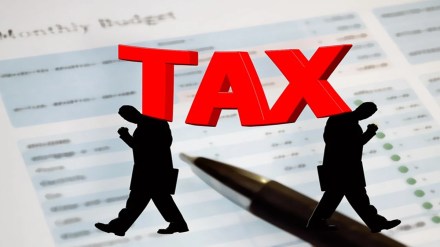The Income Tax (I-T) Department now keeps a very close eye on high-value cash transactions. If you think that the tax department does not notice digital transactions, the truth is different. Banks and financial institutions have to give information about transactions like UPI, card payments, cash deposits and withdrawals as well to the department, if they exceed a certain limit.
The Income Tax Department uses modern tools like data analytics and artificial intelligence to catch the difference between your expenses and income. Along with bank statements, investments, property deals and travel related information, information is also taken from your employer, travel agency or stock exchange. If any discrepancy is found, the department can send a notice and inquiry can also be started. However, tax officials always keep a watch on high-value cash transactions.
Also read: ITR Filing AY2025-26: In how many days will the tax refund come if you file return in April?
So let’s know about those 5 cash transactions which can bring you on the radar of Income Tax:
- Depositing a large amount in savings account
If you have deposited Rs 10 lakh or more in cash in a financial year (1 April to 31 March), whether that amount is in a single account or combined in multiple accounts, the bank will give its information to the tax department.
This does not mean that you have evaded tax, but the department can definitely ask you where did you get so much money from. If the answer is not satisfactory or does not match your income, then a penalty can also be imposed.
- Making fixed deposits in cash
Nowadays the rates of FD have increased, so people are preferring to invest money in it. But if you have made FDs of Rs 10 lakh or more in cash in a year, then this can also come under the eyes of the department.
Even if you have deposited the amount by dividing it in several banks, if the total amount exceeds Rs 10 lakh, it will be reported. Therefore, the source of the money used for FD should be clear.
- Cash investment in shares, mutual funds or bonds
If you invest Rs 10 lakh or more in cash – such as in shares, mutual funds, bonds or debentures – then the information about this also goes to the tax department.
Although it is not necessary that you get a notice immediately, but if a big difference is found between your income and investment, then there may be an inquiry. Investing in cash comes under suspicion because there is no digital record of it.
- Paying credit card bill in cash
If you pay a credit card bill of Rs 1 lakh or more in cash every month, then this also comes in the records of the tax department.
A direct notice is not received for this, but if you do this repeatedly, the question may arise as to where did you get so much cash from. Therefore, it is better to do such big transactions digitally.
- Cash payment while buying property
If you buy a property worth Rs 30 lakh or more, then you have to tell the source of that amount. This limit is Rs 50 lakh in cities and Rs 20 lakh in rural areas. This limit can be more stringent in some states.
If you made a payment in cash and did not tell its source, then the tax department can ask you for proof. You can show it in the registration documents or give information through Form 26QB.
Also read: Income Tax Returns FY25: Record-setting 9.19 crore ITRs filed till March 31
What to do if you get a notice from the tax department?
First of all, do not panic. Keep all your important documents safe – like bank statements, proof of investment, account of where the cash came from (such as inheritance, business income, etc.).
If you do not understand anything, then definitely consult a trusted tax expert or CA. Following the tax rules and maintaining transparency can save you from big problems.
